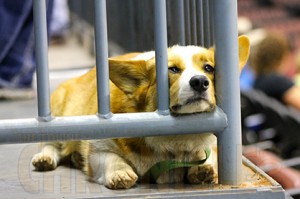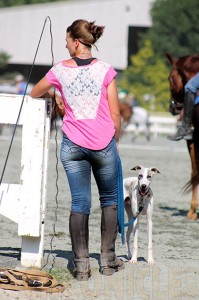Protect Your Four-Legged Furry Friends From Hidden Household Hazards
EquineChronicle.com Note: We all know that horses aren’t the only four-legged furry members of your family. For those pets you keep indoors check out these helpful tips from The American Veterinary Medical Association about preventing accidental poisoning.
You may know that chocolate is toxic to your pets, but were you aware that onions and avocados can be just as poisonous? Many pet owners are unaware that so many common household items and foods can pose a serious threat to pet health.
The American Veterinarian Medical Association (AVMA) wants to help you keep your pets safe with tips to protect your furry friends from these household hazards. Be sure to follow these tips to make sure that your pets are happy and healthy!
- Watch what “human foods” you’re feeding your pets. Along with chocolate, onions, and avocados, the AVMA also recommends keeping the following out of your pet’s diet: grapes/raisins, salt, garlic, macadamia nuts, coffee grounds, yeast dough, fatty foods, tea, alcohol, and chewing gum, candy, and breath fresheners containing xylitol.
Medication prescribed to humans should never be given to pets unless otherwise recommended by veterinarians. “So many times people think, ‘My pet is in pain, so I’ll just give it some of my medication or medication that was prescribed for another dog of mine,’ but that can have horrible adverse side effects.” says AVMA veterinarian Dr. Bernadine Cruz.
- Keep your bathroom door closed. You probably don’t want your dog drinking out of your toilet bowl already, but here’s an additional reason to keep the toilet lid shut. Chemicals used in treated toilet bowl water and in toilet bowl cleaners can irritate pets’ digestive tracts.
- Be cautious about which plants you keep inside or around your house. Plants like lilies, sago palms, azaleas, rhododendrons, tulip and narcissus bulbs, rhubarb leaves, and fungi can cause a range of health problems that include kidney failure, heart problems, intestinal problems, seizures, and liver damage, depression, comas, and more.
- Keep pets off your lawn if chemical treatments have recently been applied to the grass. If these chemicals stick to their paws, they may attempt to lick them off. This could lead to an upset stomach or other potentially more serious problems.
- Look out for small items that fall on the floor. Objects like coins, buttons, jewelry, and nails can easily be swallowed by cats or dogs and can damage their digestive tracts.
- Don’t forget about your feathered friends. Pet birds should not be kept in kitchens because cooking fumes and smoke can prove to be fatal due to their unique respiratory tracts. Birds also should not be exposed to fumes from aerosol products, tobacco, some glues, paints, or even air fresheners.
Responsible pet owners will remember that while these common household items may be safe for humans to use, they can be dangerous to their pets. The AVMA has been making sure our pets get the best care for over 150 years, and you can find more great information on keeping our pets healthy at www.avma.org.












